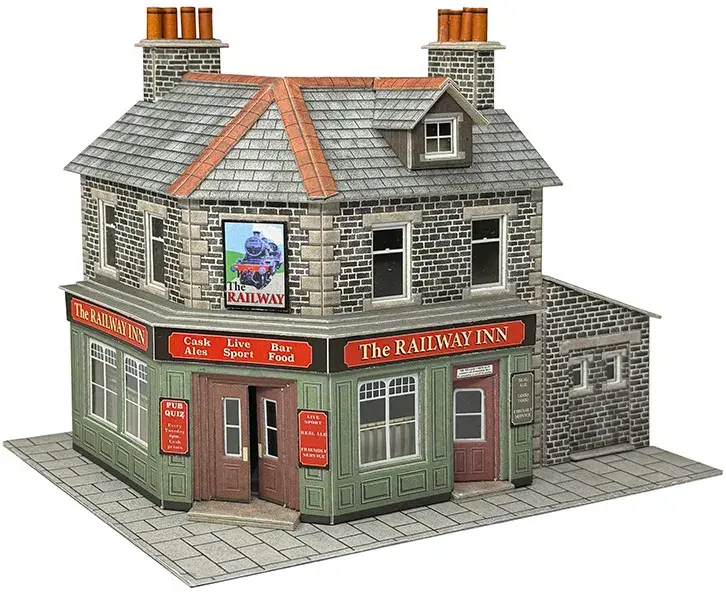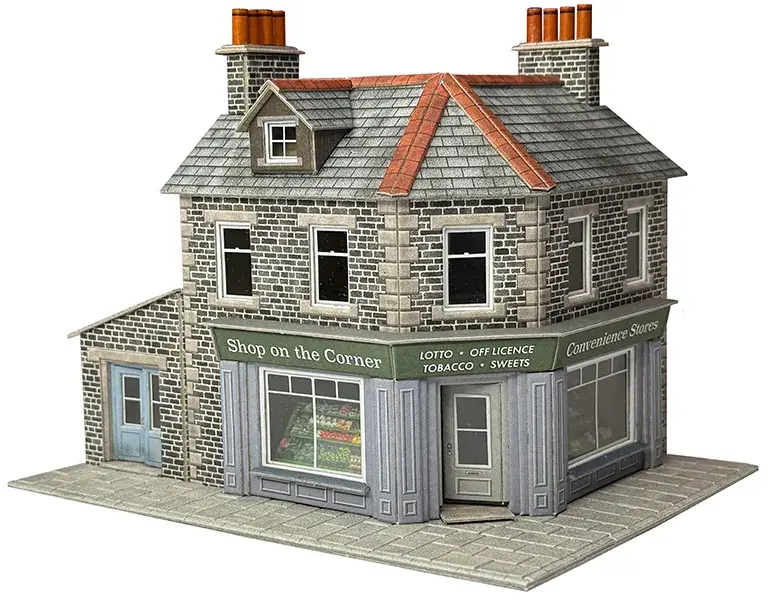Evoking the golden age of Pullman travel, this finely crafted coach exudes sophistication, making it a standout addition to any TT:120 collection. Finished in the iconic Pullman livery with exquisite lining and finely rendered lettering, ‘Cynthia’ embodies the refinement and comfort that made Pullman dining cars legendary. The interior is intricately detailed with working table lamps, reflecting the opulent surroundings that passengers once enjoyed, while the accurately modelled kitchen section adds another layer of authenticity. Each dining table in the car has a working table light offering ambient lighting within the car.
HistoryPullman carriages were first seen on Britain’s railways in 1874, operated by the Midland Railway between Bradford Forster Square and London St Pancras. Initially, the coaching stock was imported from America, but the British ‘Pullman Car Company’ was formed in 1882, named after American pioneer George Pullman. The company entered into contracts with the various railway companies of the day to offer opulent first-class seating, complete with at-table steward service.
The Pullman Car Company had its own workshops at Brighton, and the manufacture of Pullman Cars was also carried out by the Birmingham Railway Carriage & Wagon Company and the Metropolitan Cammell Carriage & Wagon Company. Pullman cars provided a superior standard of first-class travel, with kitchen cars introduced that could serve cooked meals, served at the passenger’s table, which would be dressed with clean white linen and the finest crockery and tableware.
Before long, Pullman trains were operating on all of the principal long-distance routes in Britain. Pullman services were operated by all of the ‘Big Four’ companies, even the Great Western, which was initially reluctant to have them as it believed its coaches were already luxurious enough. All first-class cars had names in a Greek naming convention, though when Third Class vehicles were included in trains, these instead had the car number emblazoned on each side.
All vehicles had a distinctive umber and cream livery, with the Pullman coat of arms proudly displayed. After Nationalisation, the Pullman Car Company was bought by the British Transport Commission in 1954, by which point, apart from ten recently built cars, the fleet had become somewhat elderly. It was decided to modernise Pullman services as part of the British Railways 1955 Modernisation Plan, with new coaching stock and diesel or electric haulage.
Although moderately successful, services declined, and the last Pullman trains operated under BR in 1972. All Pullman trains had First Class Kitchen Cars in which passengers were served hot meals at their tables. ‘Cynthia’ was introduced in 1925.
Pullman 1st Class Kitchen Cynthia
This is a pre-order item. We will take a small deposit for your order now and take the remaining balance when we dispatch your item.






























